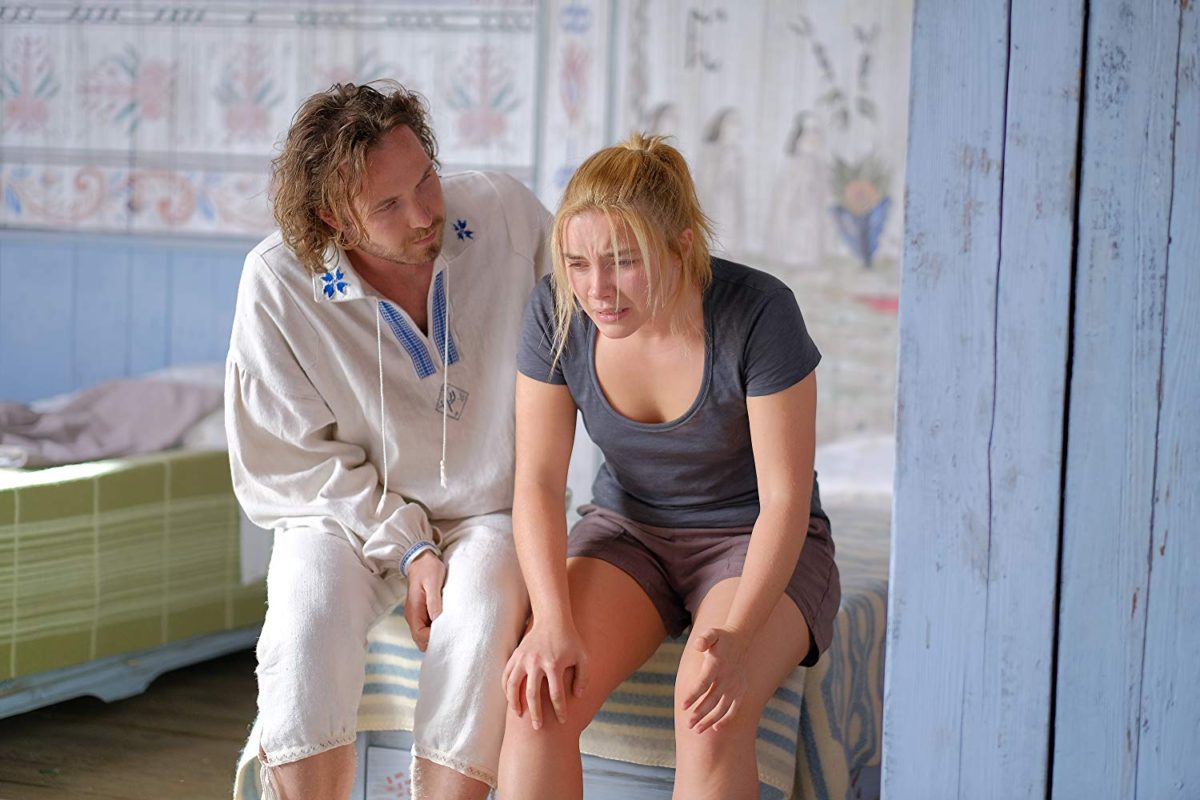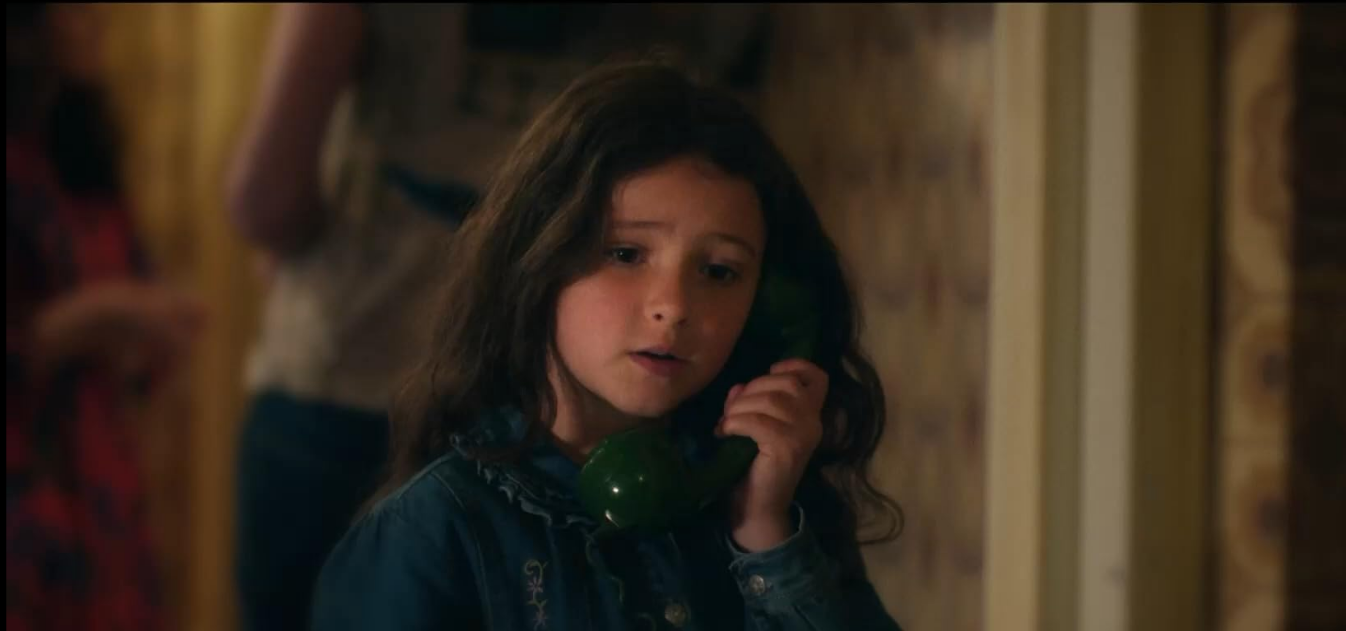Movies
[Review] Ari Aster’s ‘Midsommar’ is a Gorgeous, Emotionally Overwhelming Mixed Bag

Say what you will about Midsommar, and people are going to say an awful lot of things, but it’s a big swing for filmmaker Ari Aster. The writer and director of Hereditary is back with yet another saga about apocalyptic emotions, filtered through the lens of eerie occultism, and it’s as ambitious and overpowering a horror movie as you are likely to see this year.
Whether it’s actually good is a matter for some discussion. Midsommar may be a spectacularly realized vision of relationship anxieties writ large, a drugged out descent into mania and madness, but it also takes an extremely long time to tell a very straightforward story, and many of the film’s most shocking moments go nowhere and/or feel judiciously borrowed from other films, like The Texas Chain Saw Massacre, The Wicker Man and – although I suspect this one may have been unintentional – the laughable remake of The Wicker Man.
Midsommar stars Florence Pugh (Fighting with My Family) as Dani, a college student in a miserably co-dependent relationship with her boyfriend, Christian (Jack Reynor, Free Fire). Just when he seemed like he was about to break up with her, after years of simmering resentments and miseries have been tearing them apart, her whole family dies in a shocking murder/suicide.
Now Christian can’t bring himself to end the relationship, so instead he invites her to go on vacation with him. Grieving, but unable or unwilling to say no, Dani joins Christian and his friends on a journey to Sweden, where the folksy hometown of one of his fellow students, Pelle (Vilhelm Blomgren), is holding a festival that only comes around every 90 years.

Joining them are the loudmouth, horny Mark (Will Poulter, Detroit) and the serious anthropology student Josh (William Jackson Harper, The Good Place), and together they discover that Pelle’s home is a mysterious place, full of bizarre rituals, eerie murals and visitors who start mysteriously going missing.
The structure of Midsommar will be familiar to fans of horror movies where stock character types like “the bad boyfriend,” “the nerdy guy” and “the loudmouth, horny guy” travel to rural areas and get what’s coming to them. Aster seems to have taken the basic formula from well-trodden horror territory and decided to put his own stamp on them, for better and worse.
For better, Aster has real ideas to explore in Midsommar. His first feature, Hereditary, used nightmarish ideas and imagery to expose the terrible anxieties permeating throughout a family with a history of mental illness. His second pulls the same trick, but with the emotional turmoil in a poisonous relationship. Aster seems to have recognized and replicated the interminable suspense that comes from watching two lovers, who secretly hate each other, try to postpone the inevitable breakup.

In other words, in Dani and Christian’s relationship, and in the gruesome horror film they live in, we all know the end is coming. And even though we all know it’s going to be hard to watch, we also kind of want them to get it over with.
For worse, that sense of foregone conclusion may be palpable and powerful in the film’s first act, which is all about those relationship woes, but as Midsommar progresses the suspense builds and builds as though we have no idea where it’s going to go. And since the movie is over two hours long it builds for a very, very long time. Aster isn’t terribly interested in reinventing the wheel when it comes to the structure of his Wicker Man riff, so although astute audiences may not know exactly how it’s going to happen, we all have a general idea that this whole thing is leading somewhere violent and disturbing, and the interminable tension eventually gives way to mere impatience.
Marrying such an overwhelmingly evocative storyline to such a familiar framework only gets Midsommar so far. Aster sells and oversells and hits you on the head with his symbolism. Practically every interior is covered with murals and runes that roughly translate to “obvious foreshadowing.” If you think the giant poster on Dani’s wall of a girl wearing a crown bowing to a bear isn’t a blunt metaphor, well, you might be impressed. But Aster’s long, lingering shots don’t give the audience much to do besides scan for details, and the plot isn’t quite eventful or riveting enough to obfuscate those storytelling devices.

What must be said about Midsommar is that it may be the most astoundingly filmed horror movie in a long, long time. Aster’s cinematographer, Pawel Pogorzelski (Hereditary), paints unforgettably uncomfortable images out of bright light, soft diffusion, and a palette of pastels. Midsommar looks like Easter Sunday gone mad, and as the film progresses, and our protagonists find themselves falling deeper into the natural world, they find themselves literally overtaken with plant life.
It would be beautiful if it wasn’t so terrifying. Actually, it’s still beautiful anyway. The best moments in Midsommar come when Aster eschews the awkward and obvious culture clash symbolism (how cute is it that the biggest jerk in a paganism movie is named “Christian?”) and highlights instead the raw, soulful energy of Florence Pugh’s performance. Powerful, but denying herself all power, and grieving, but unable to find anyone who cares. The film’s most unforgettable, cathartic moment comes not with the gruesome, vivid violence but the scene where a room full of cult members breathes in time with her, screams along with her, and fully shares her unbelievable pain.
Midsommar seems to understand, in fits and starts, the allure of the cult lifestyle, and the fragility of the people who succumb to it. The community in Midsommar has an undeniable appeal – again, it’s photographed like a Beatrix Potter illustration on ‘shrooms – but the movie itself is so ham-fisted with its red flags, and so simplistic with many of its characters (even though the actors try their hardest to make them richer), that parts of the film veer into camp territory. With only a slight tilt of the head Aster’s tragedy becomes a comedy. Sometimes the film tilts for us, but it’s not always at appropriate moments.
It’s tempting to call Midsommar a great film. The film practically announces its greatness from the mountaintops. But by making such a noble effort to turn this material into something profound, Aster can’t help but highlight just how flimsy some of the ingredients are. To get invested in the emotional journey is to overlook the film’s ramshackle, formulaic story. To complain too much about the story is to deny the film’s sweeping, weeping soul.
Instead, we are forced to accept both; that Midsommar is an intermittently impressive and frustrating film, but worth watching for every single one of its flaws. You can’t come this close to greatness without trying harder than, frankly, most filmmakers would bother, and the ambition translates into a strange, gorgeous, complicated experience.

Movies
Matilda Firth Joins the Cast of Director Leigh Whannell’s ‘Wolf Man’ Movie

Filming is underway on The Invisible Man director Leigh Whannell’s Wolf Man for Universal and Blumhouse, which will be howling its way into theaters on January 17, 2025.
Deadline reports that Matilda Firth (Disenchanted) is the latest actor to sign on, joining Christopher Abbott (Poor Things), Julia Garner (The Royal Hotel), and Sam Jaeger.
The project will mark Whannell’s second monster movie and fourth directing collaboration with Blumhouse Productions (The Invisible Man, Upgrade, Insidious: Chapter 3).
Wolf Man stars Christopher Abbott as a man whose family is being terrorized by a lethal predator.
Writers include Whannell & Corbett Tuck as well as Lauren Schuker Blum & Rebecca Angelo.
Jason Blum is producing the film. Ryan Gosling, Ken Kao, Bea Sequeira, Mel Turner and Whannell are executive producers. Wolf Man is a Blumhouse and Motel Movies production.
In the wake of the failed Dark Universe, Leigh Whannell’s The Invisible Man has been the only real success story for the Universal Monsters brand, which has been struggling with recent box office flops including the comedic Renfield and period horror movie The Last Voyage of the Demeter. Giving him the keys to the castle once more seems like a wise idea, to say the least.














You must be logged in to post a comment.